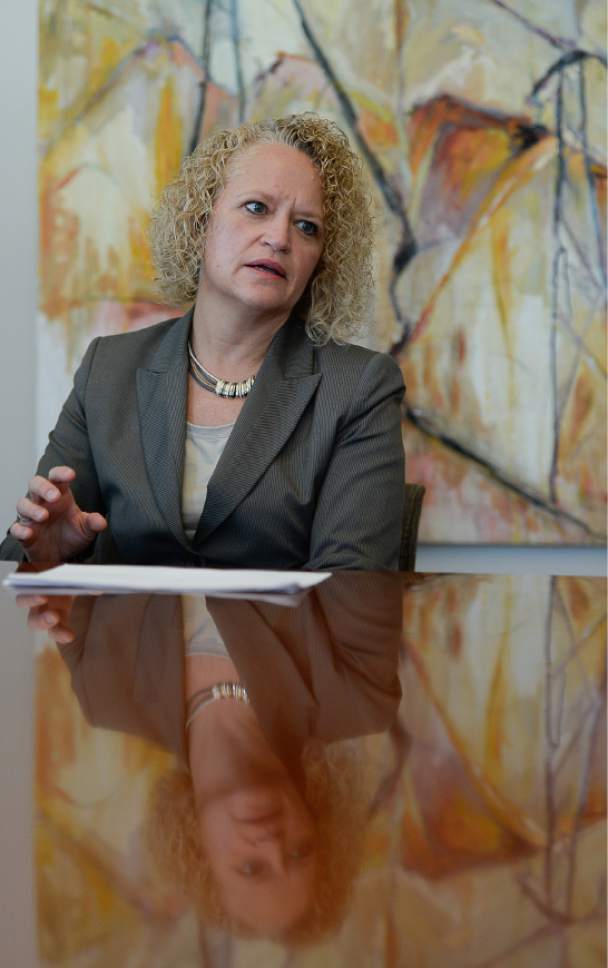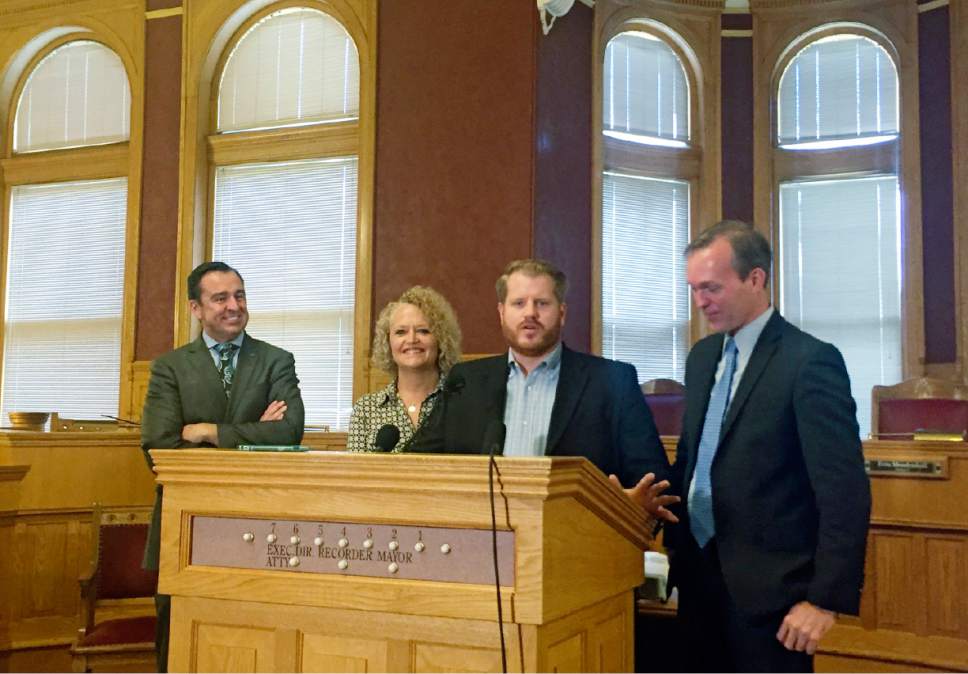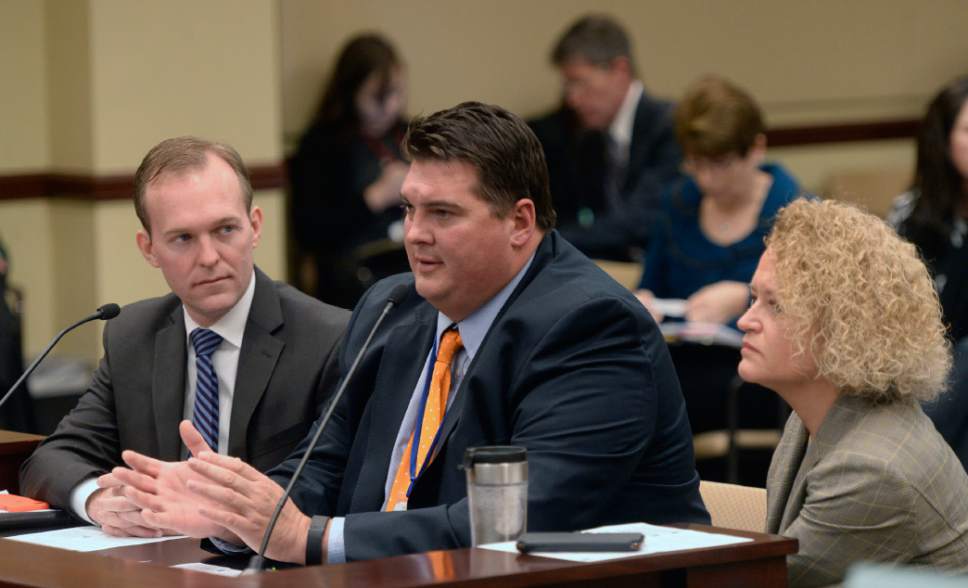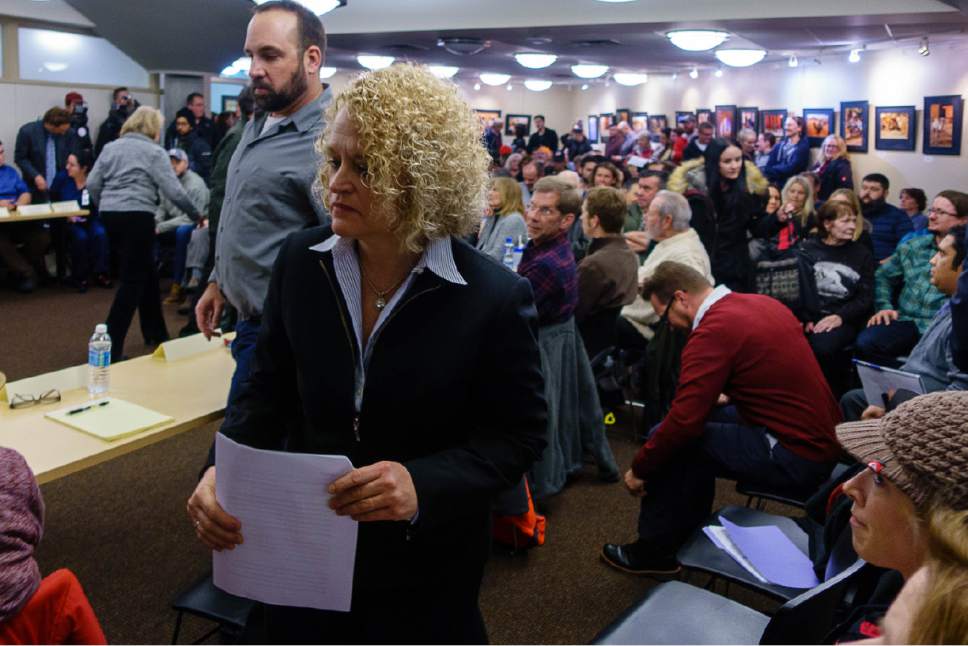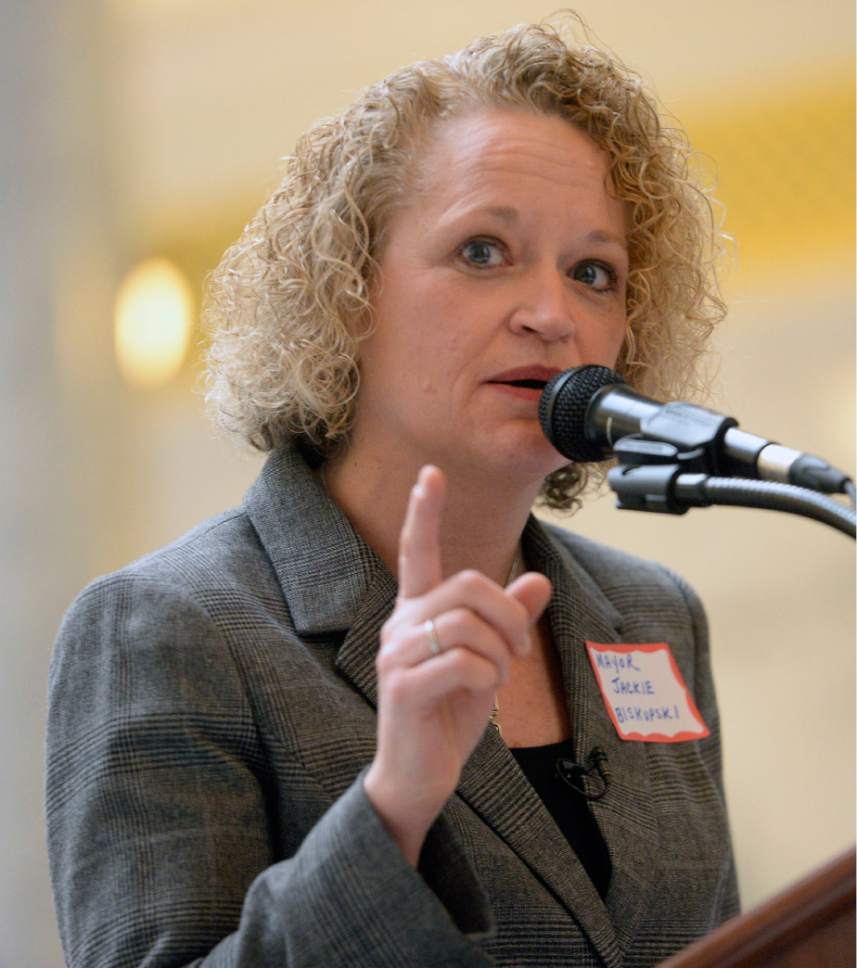This is an archived article that was published on sltrib.com in 2017, and information in the article may be outdated. It is provided only for personal research purposes and may not be reprinted.
Salt Lake City Mayor Jackie Biskupski, in her first public interview since Salt Lake County Mayor Ben McAdams aired a rift between the two, downplayed the dispute and called on the county to provide more information about its new homeless-services model.
If that model doesn't reduce the need so it can be met by four planned 150-bed shelters in Salt Lake City, Biskupski said, she'd like to see "a safety net somewhere else in Salt Lake County," not at the current emergency shelter operated by The Road Home at 210 S. Rio Grande.
"The council and I raised our hands to build new resource centers, and to implement this new model that was designed by the county. I think it's important for the county to stay focused on the service model," she said, a day after McAdams complained one of the city's chosen shelter sites — the most controversial one, at 653 E. Simpson Ave. (2300 So.) — was too costly and that he couldn't agree to close the aging Road Home shelter at an "arbitrary date."
Biskupski and McAdams attended a Thursday morning meeting with Senate and House leadership that included House Speaker Greg Hughes, R-Draper, who has pressed them for progress as they seek the second of three installments of state funding expected to total $27 million.
Hughes would only generally characterize the meeting as producing agreements "that we can build on."
"You've got to be really blunt with each other and you've got to get to a solution," he said. "If you share details of meetings like that ... I don't know how many more of those meetings you're going to be able to have."
Biskupski said afterward that she believes all parties are "on the same page" about the number of sites and the need to close the current emergency shelter.
The sitdown was "cordial and productive," McAdams said, though he still believes the Simpson Avenue site, at $7 million, is too expensive. He said he asked state lawmakers to consider using $30 million in matching funds set aside for a Medicaid expansion if they hope to reduce the homeless population and close The Road Home shelter.
All sides have agreed the shelter should close. The argument is over whether to commit to closing it immediately upon the opening of four new shelters — billed as all-day, self-contained, one-stop resource centers — or to keep The Road Home shelter open in case the population hasn't been sufficiently reduced. The current shelter sleeps 1,100, while the city has proposed a cap of 550 beds at the new sites.
McAdams has allayed fears from homeless-service providers and state officials by saying The Road Home could remain open indefinitely. Biskupski said Thursday she had thought the county's service and prevention efforts would do enough to draw down the population while the new shelters were built.
"Up until today, I had been led to believe that the new programming coming online and the model that's been created by the county for service would still be able to diminish numbers, because it included prevention," she said. "I am now hearing that Mayor McAdams is wavering on the impact that will have."
McAdams said he hasn't wavered.
"Our message is the same as it always has been," he said, "which is that without any additional funding, the county's services today are what they were last year."
McAdams referred to a Tribune story about the future of Utah's small-scale Medicaid expansion, which would cover 9,000 to 11,000 Utahns and targets many who are either homeless or at risk of becoming homeless.
As President Barack Obama leaves office without acting, approval for $70 million in federal funds now falls to the administration of President-elect Donald Trump. In the meantime, the state has $30 million in matching funds that it can use for behavioral health, McAdams argued.
Biskupski said she believes the city, county and state are all trying to come up with more money for resources. Utah's Medicaid expansion, she said, is "an important piece, and the discussion today is if that does not happen, if we don't get that match, then what?"
Hughes said it's not as simple as $30 million sitting around in the state coffers, waiting to be spent, but that he's "willing to look at that" if the city and the county can show tangible progress in the meantime.
"We've got to have four sites, we've got to have designs, we've got to have a way forward," he said. McAdams' proposal that the city court a development that includes affordable and deeply affordable housing instead of a shelter at 653 E. Simpson is not being actively considered, Biskupski said, adding, "The majority of the council and I are still firm on the four sites we've selected."
But the city's newly acquired land on the south side of Simpson Avenue — across from the planned shelter site — had already been eyed for the purpose of affordable housing, she added.
The city paid $7 million for property assessed at $2.8 million in county property records, but it might have been worth twice that given rental income, an area real-estate agent told The Tribune.
McAdams said Thursday he had posed the affordable-housing alternative as an "open question" and said "I still want to respect that choosing the sites is entirely up to the city."
His suggestion had resonated with City Council member Lisa Adams, whose district includes the Simpson Avenue site.
City Council member Erin Mendenhall, whose district boundary is a few blocks away, has agreed that 653 E. Simpson is unsuitable for a shelter, while nearby residents and affected business owners in opposition have packed public meetings in the weeks following the December site announcement.
Adams said she hadn't known about Thursday's meeting, and wasn't invited.
"I'm surprised that the mayor is comfortable speaking for the council, saying everyone agrees for the four sites," she said.
Mendenhall wrote on Facebook on Thursday that she told the administration during a small group meeting during site selection that the city needed to give a heads-up to neighbors at 653 E. Simpson — which leases to four businesses and abuts a neighborhood of single-family homes — and that she suggested it offer to buy nearby homes at current market value.
"They assured me they were working on it. When the day for public announcement arrived, I learned that my request had not been fulfilled," she wrote.
No other members of the City Council have publicly opposed the other sites.
In the wake of rampant criticism about the city's lack of public input on site finalists — with McAdams among the critics — Biskupski said Thursday that the county now needs to provide assurance to the city and its residents.
People need to know what the county's services will do to prevent homelessness and reduce the population, she said, and the city needs guidance about how the resource centers will operate.
Said Biskupski: "We have some work to do to figure out the strategy in a more refined way, and how we reduce those numbers at The Road Home while these resource centers are being built."
Twitter: @matthew_piper


